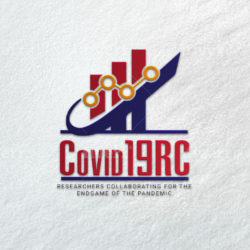The EUI’s Arnout van de Rijt and his co-authors, Sergio Lo Iacono, Wojtek Przepiorka, Vincent Buskens, Rense Corten, have studied the impact of pandemic containment measures on the social structure of society, and found that social trust has been eroded.
Patent waivers for COVID-19 vaccines would change little in the current situation
The debate continues about whether the patents on Covid-19 vaccines should be waived to allow low-income countries to produce doses for themselves. In current circumstances, such a course of action is likely to have little effect for good or ill, argue Michele Boldrin, David Levine, and Flavio Toxvaerd.
If chased by a bear – don’t stop running!
Medical authorities around the world have paused vaccination campaigns in response to fatal side-effects observed in a rare number of cases. They claimed to act out “an abundance of caution”. As experts in risk assessment and statistical analysis, Peter Reinhard Hansen and David Knudsen Levine argue that an abundance of caution really dictates the continuation of vaccinations with risk levels being continuously evaluated as the campaigns proceeds.
Latest COVID-research – NBER Working Papers
This thread lists COVID-related papers recently published in the Working Papers series of the National Bureau of Economic Research (United States).
From the 29 March edition:
- The Incidence and Magnitude of the Health Costs of In-person Schooling during the COVID-19 Pandemic, Casey B. Mulligan
- Addressing the COVID-19 Pandemic: Comparing Alternative Value Frameworks, Maddalena Ferranna, JP Sevilla, and David E. Bloom
- Bayesian Estimation of Epidemiological Models: Methods, Causality, and Policy Trade-Offs, Jonas E. Arias, Jesús Fernández-Villaverde, Juan Rubio Ramírez, and Minchul Shin
NOTE: The NBER Working Papers series publishes early findings of ongoing research to encourage discussion and collect suggestions for revisions. Papers are neither peer reviewed nor endorsed by the NBER Board of directors.
OECD-Report: Science and Innovation in Times of Crisis
The new OECD Science, Technology and Innovation Outlook 2021 with a focus on the COVID-19 pandemic sheds light on the enourmous scientific and technological achievements the global crisis response has produced. But it also warns of possible long-term consequences for innovation systems in times of rising government debts and competing demands for financial resources.
Lockdown and social distancing fuel wage inequality and poverty across Europe
The economic impact of lockdown and social distancing measures goes beyond the contraction of GDP. Juan C.Palomino, Juan G.Rodríguez, Raquel Sebastian study the capacity of people across different occupations to continue their work under four different lockdown scenarios. Their findings suggest for 29 European countries significant rises in poverty levels as well as wage losses especially for poor workers in jobs with limited teleworking capacity. Growing wage inequality may be among the long-term consequences of the COVID-19 crisis.
Managing Population Immunity
Flavio Toxvaerd and Robert Rowthorn present a new paper analysing the effects of treatment of and vaccination against infectious diseases, such as COVID-19, on herd immunity. They also discuss socially optimal policies for such pharmaceutical interventions in contrast to non-pharmaceutical interventions (NPIs) like lockdowns or social distancing.
Do social distancing laws reduce consumer spending? Not necessarily! Lessons from Sweden and Denmark
Using transaction data from a big Scandinavian bank, Asger Lau Andersen, Emil Toft Hansen, Niels Johannesen, Adam Sheridan compare the impact of social distancing laws on consumer spending in Sweden and Denmark, two countries that chose vastly different approaches in containing the pandemic. Their findings suggest that most of the economic contraction is caused by the virus itself and occurs regardless of social distancing laws.
German study relates easing of restrictions to economic costs and benefits: Step-by-step re-opening preferable
A study by the ifo Institute and the Helmholtz Centre for Infection Research (HZI), conducted in April 2020, finds that economic interests and health policy objectives are not necessarily in conflict when it comes to the speed of easing of restrictions: Their scenarios show that a quick re-opening, promising short-term economic benefits, increases the overall costs in the long-run. A gradual relaxation of measures, in turn, limits economic costs while helping the containment of the virus.
Underestimated option? Repurposing drugs for treatment of COVID-19
With the main focus on finding a COVID-19 vaccine, policy makers and industry have paid less attention to the development of therapeutics. Within this field, Susan Athey, Rena Conti, Richard Frank and Jonathan Gruber show, the repurosing of existing drugs for treatment of COVID-19 diserves special attention, as the safety of these drugs is already established and their manufacturing well understood. Given that this path is less attractive for private sector investors in comparison to the development of new drugs that can be sold at higher prizes, the authors propose a three-part plan for the U.S. government to incentivice investment and studies into repurposing drugs for COVID-19 treatment. The plan suggests among other things public-private partnerships, clinical development networks and premiums paid for successfully bringing repurposed drugs to the market.
